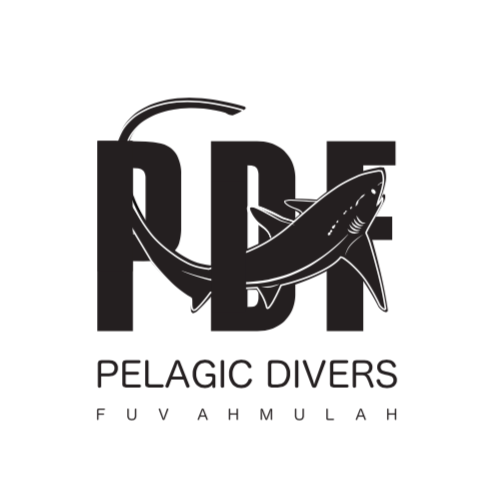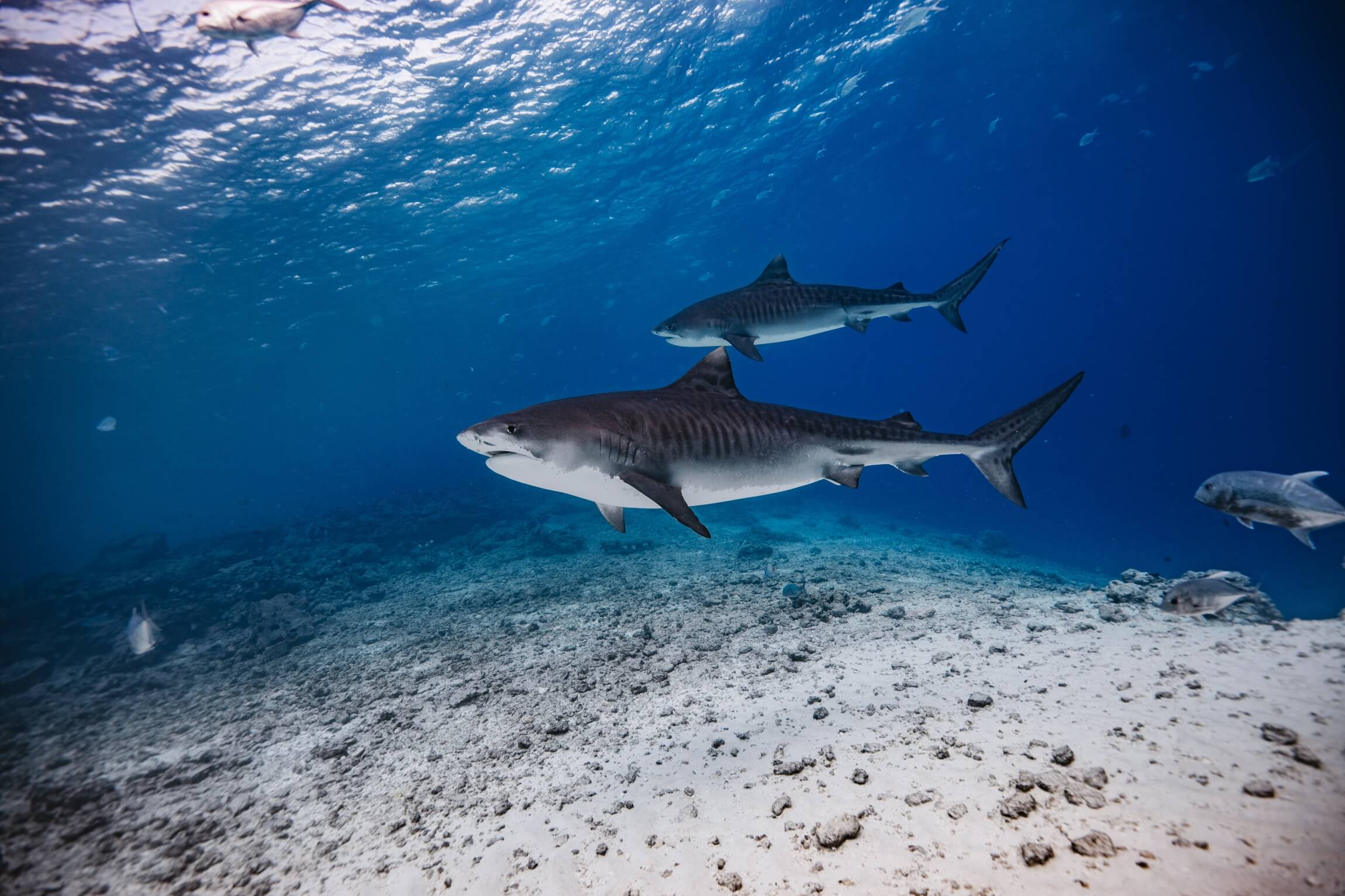Fuvahmulah Tiger Shark ID Project
We invite you into the fascinating world of tiger shark diving in Fuvahmulah. The crystal-clear waters of the Maldives provide one of the few habitats where tiger sharks thrive. Fuvahmulah gives divers the best opportunity to encounter these majestic creatures. You not only meet them up close but also play a vital role in conservation efforts. Your contributions help ensure they continue to roam the surrounding waters of Fuvahmulah. Discover more about these incredible creatures and how you can help protect some of the most amazing marine life.
Overview of the Tiger Shark ID Project
To understand more about tiger shark diving in Fuvahmulah we will first explore the Tiger Shark ID Project. It is a unique idea that allows us to understand more of the intricate world of this pelagic species. In 2016, a master student working with a local dive school decided to design his master thesis around tiger sharks. The Tiger Shark ID project gathers comprehensive, individual-level data on tiger sharks that have called the waters of Fuvahmulah home. Together with our partners, we collect data on a daily basis, maximizing the insights gained from this project.
Tiger sharks, as many other elasmobranchs species, play a vital role in preserving the ecosystem. They ensure an ecological balance within the ecosystem with important roles in the food web. Without them the ocean and its ecosystems will collapse, which further highlights their importance in preserving this equilibrium.
What We Have Discovered from Diving With Tiger Sharks in Fuvahmulah
Tiger shark diving in Fuvahmulah is a wonderful experience, but is also having access to crucial information about their population. The project has uncovered important information about site fidelity, residency patterns, and preliminary details about pregnancies. These provides us with insights into their biology and ecology.
Simultaneously, Filippo Bocchi, our resident marine biologist and early-career shark researcher, designed a project that has illuminated their social preferences. This provides some deeper insight into the unknown facets of their hierarchy. The ongoing team effort is the result of a collaboration with worldwide renowned shark researchers from the Shark Research Centre (SCC) – Primo Micarelli and Francesca Reinero – the University of Siena (IT), and our partner dive centres.
Intriguingly, the Tiger Shark ID project has helped us learn more about the population accessing the Fuvahmulah Harbour. So far, we have identified approximately 236 individual tiger sharks, including 199 females and 37 males, with an average length of 2 to 4.5 meters. Most of these sharks have visited the waters of the harbor, also known as ‘Tiger Harbour.’
Stay in Touch with Us
To remain up to date with our project, you can follow our Instagram profile, SharkIDFuvahmulah. The account offers daily photo-ID updates of identified tiger sharks during dives, along with some monthly curiosities and research findings. Our partners have also established a freely-accessible shark database on their website so you can learn more about these fascinating creatures.
More projects are on the horizon from engaging schools and local communities to access this vital research. Through the power of collaboration, we can safeguard these tiger sharks and other marine animals that call the Fuvahmulah water their home.
Make a Difference and Join Our Community
If you always asked yourself how to access information regarding tiger sharks and other species in Fuvahmulah as well as help us in our research projects, here there are some ideas for you:
- Attending Marine Biologist Presentations
- Follow our ‘SharkIDFuvahmulah‘ Instagram page
- Equipment Donation (unused GoPros, batteries, housing, memory cards, etc…)
Additionally, if you want to help the local community on the island and improve your diving abilities when diving with sharks you can:
- Sign up for the Tiger Shark Specialty Course
- Eco-friendly solutions to help a better management of wastes on the island (ex. take home plastic containers – shampoo and body wash – and all other pieces of trash that can be better managed in your country)
- Organise beach clean-ups with your peers/team
Support local conservation initiatives (donating to the home water filter project, purchasing PDF merchandise as proceeds go towards the home water filter project)
Frequently Asked Questions
- What is the purpose of identifying tiger sharks in Fuvahmulah?
The main purpose of identifying tiger sharks in Fuvahmulah is to gauge and attempt to track the number of individuals that are around the island. Since the start of the research, there have been 236 individuals identified and could possibly be one of the healthiest tiger shark populations in the world.
- How do you identify tiger sharks?
There are seven main points used to identify tiger sharks. We do this by taking photos and videos of tiger sharks present during the dive. We then compare these seven main points against the database of identifying patterns and/or marks that have been collected over the years.
- Why is it important to ID Fuvahmulah’s tiger sharks?
It is important for us to ID the tiger sharks in Fuvahmulah as we are able to learn more about their population to better help protect them and the environment that they are in.
- Who can help contribute to the Fuvahmulah tiger shark ID project?
Anyone can contribute to the Fuvahmulah tiger shark ID project. Divers that are shark diving in Fuvahmulah are able to share photos or videos of tiger sharks with our Marine Biologist to help build the Fuvahmulah tiger shark database, visitors to Fuvahmulah can ensure to dispose plastic waste properly or take home any plastics that they brought with them, attend our weekly tiger shark presentation, donating equipment or funds to expand our research and water filter projects.

